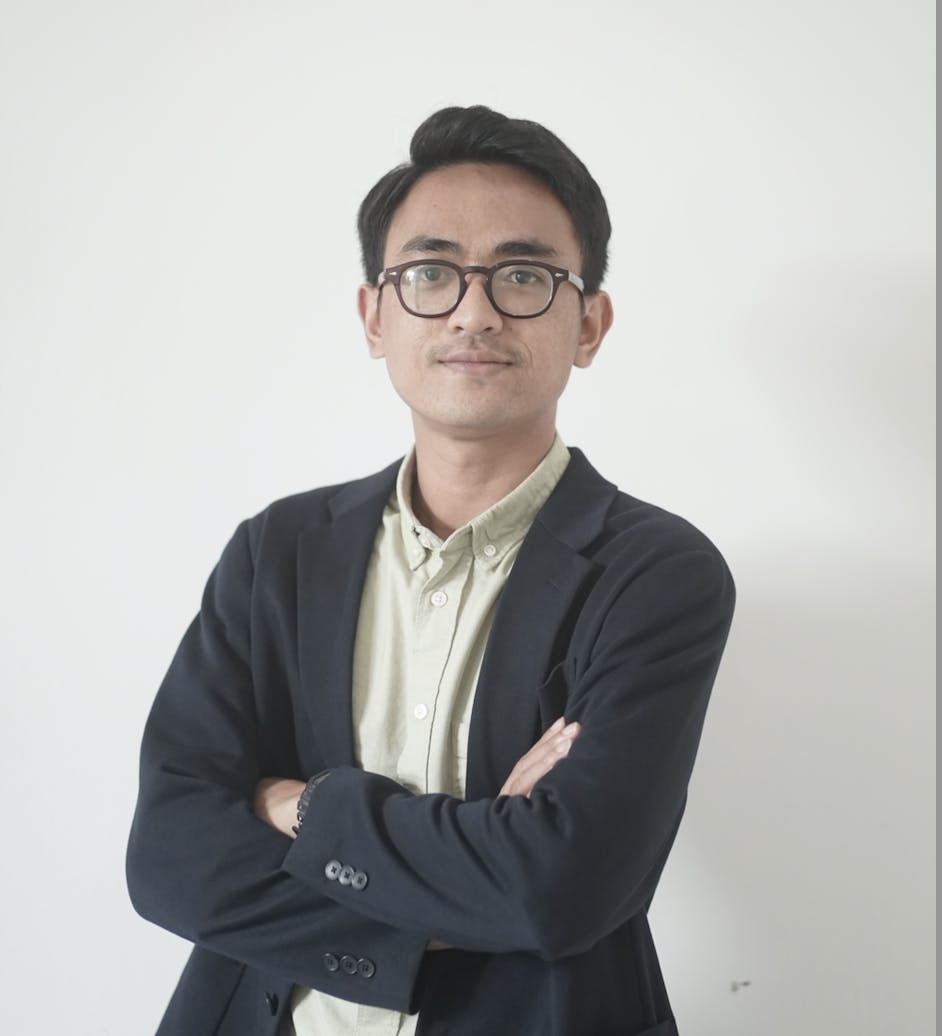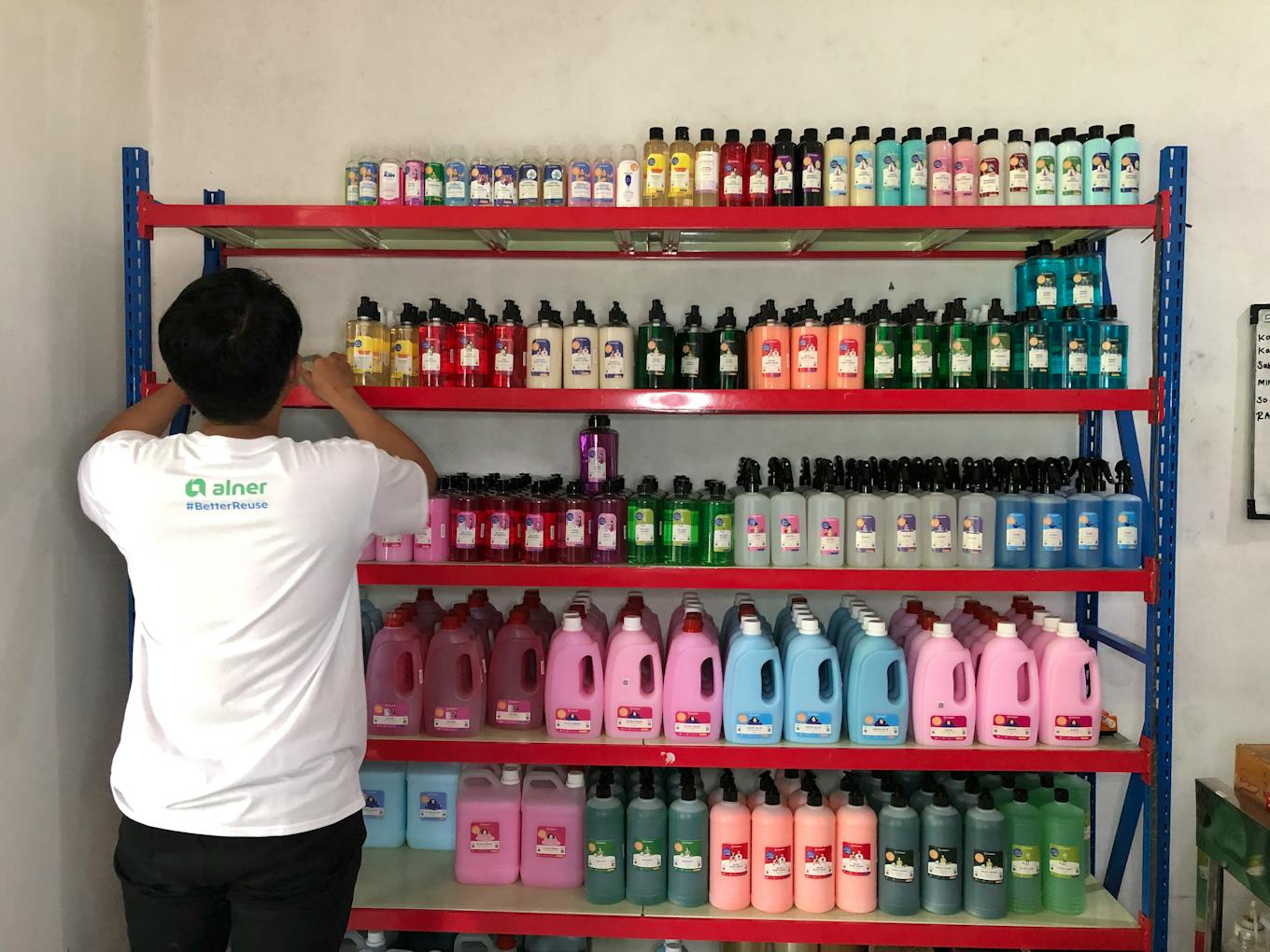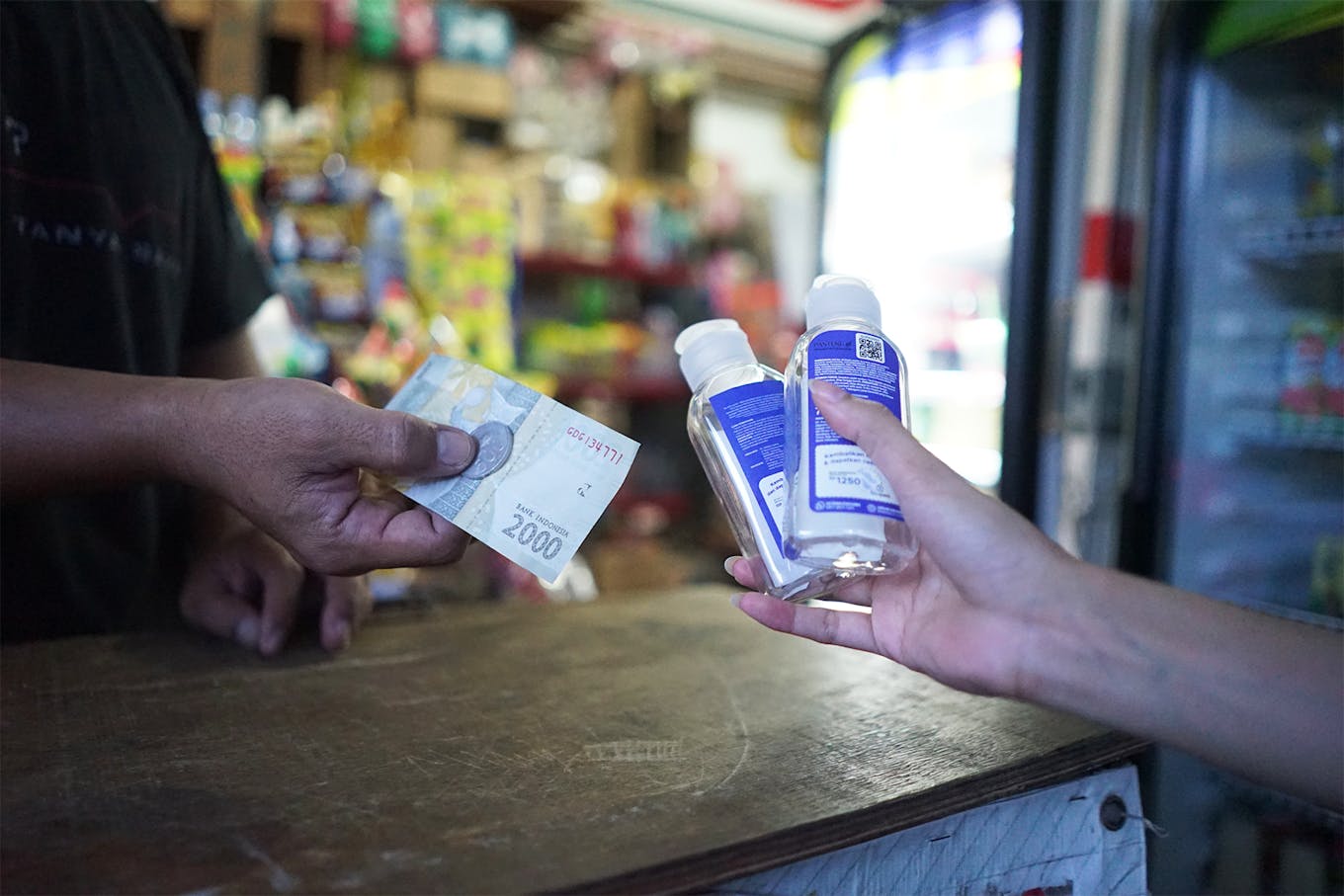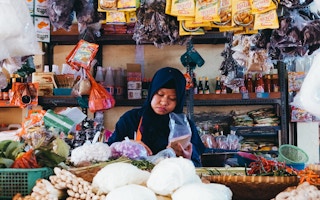In Indonesia, which lacks adequate infrastructure to collect and recycle waste properly, single-use sachets represent the ultimate symbol of a throwaway culture that has given rise to Southeast Asia’s plastic waste crisis.
In minimarts or warungs (Bahasa Indonesia for small retail stores) across the country, almost all daily goods, from shampoo to coffee, are sold in these palm-sized packets made with hard-to-separate multi-layered material, or small single-use bottles. The packaging model was pioneered by fast-moving consumer goods (FMCG) companies in the 1990s, when they wanted to target poorer consumers who could only afford the single servings at lower prices. Since then, these companies, pressured by changing laws and regulations, have jumped into ventures and pilots, in attempts to collect and recycle the ubiquituous plastic packaging, and get rid of the scourge that it helped to create. Most initiatives have failed.
Last year, it was widely reported that a waste collection and recycling scheme devised by Unilever – one of the world’s largest consumer goods companies – and launched in Indonesia five years ago was abruptly halted by the corporation. Critics called it an “expensive failure” mainly due to a lack of understanding of how the country’s recycling system operates.

Bintang Ekananda, co-founder and director of Alner, wants to scale a ‘reuse revolution’ in Greater Jakarta and beyond. Image: Bintang Ekananda
Now, regional and global FMCG corporations are starting to work with homegrown Indonesian start-ups looking to deal with the plastic waste issue from different angles. For Alner (formerly Koinpack), a Jakarta-based start-up founded in 2020, the solution lies in promoting reuse. Its co-founder and director Bintang Ekananda says the time is ripe to “scale a reuse revolution” across Asia, and the way to do it is to take a “radical” but pragmatic approach: make reuse cheap for consumers, and profitable for retail store owners.
Alner offers a service to FMCG businesses that want to transition to reusable packaging, by directly providing them with specially-designed packaging to fill their products, help distribute the goods to its retail sales points across four satellite cities in Greater Jakarta, collects the empty packaging and clean it.
The start-up is currently collaborating with FMCGs such as Wipro Unza, Barco and Yagi Natural, and recently inked a deal with Transform, a joint initiative between Unilever, the United Kingdom’s Foreign, Commonwealth and Development Office (FCDO) and professional services firm EY.
It is also looking to expand its sales force and footprint across the region, to countries such as the Philippines, Malaysia and India.

A staff checks the bottle inventory at Alner’s warehouse. Image: Alner
An Ellen MacArthur Foundation study says that replacing just 20 per cent of single-use plastic packaging with reusable alternatives globally is conservatively estimated to be an opportunity worth at least US$10 billion. In this interview, Bintang tells Eco-Business why he thinks FMCG companies are finally sold on the idea of packaging reuse, and explains why mindsets are starting to change.
The Eco-Business Youth A-List 2022 winner also shares about the struggles he’s been through as a first-time founder, and how the Indonesia start-up scene has evolved.
Why is single-use packaging waste a problem for Asia? How is Alner trying to tackle it?
Single-use packaging is very dominant in Indonesia, in other countries in Southeast Asia such as the Philippines, as well as in South Asia. Most of our daily products like shampoo, detergent, cooking oil and salt come in multi-layered packaging or sachets. These are very hard to recycle, and we need technology to separate the layers, which is an energy-intensive and high-emissions process, before the packaging can eventually be recycled.
The biggest challenge, however, lies in managing the waste value chain. In Indonesia, we rely on the informal sector for the collection of packaging waste, and these collectors are not interested in collecting multi-layered packaging because the process is time-consuming. The sachets are also very light, so the collectors don’t earn much from selling them. So instead of focusing on the downstream and looking at collection and recycling, we are trying to solve the problem at its source. Fix the leaking roof, and not just mop the floor. We want to work with the brand owners, in this case the FMCG companies, to provide “reuse as a service”. What this means is we essentially supply everything that is necessary for the brand to shift from a linear business model to a circular one. For example, we provide them with our reusable packaging that can be used up to 20 times. This packaging is designed and created by using post-consumer recycled plastic. We also help the FMCG companies set up sales points where we pilot the sales of their products in reusable packaging. This extends the life cycle of the packaging. It also means there is reduced energy use from the production of the packaging, and this solves not just the waste problem, but also the emissions problem as well.
“
When I went to the warung stores, I was met with rejection again and again. The store owners could not see the urgency or importance of changing the way they sell their products. So I had to tweak my approach. Instead of promoting the environmental value of changing their sales practices, I showed them that it would bring about tangible benefits, and in this case, that meant more profits.
Alner now has more than 100 sales points, which are also drop-off points for customers to return their empty used packaging. Our ambition is to expand the sales points to include mini markets and supermarkets in the near future, as more people are shopping regularly there too. When customers return the packaging, we collect it and send it to our cleaning facility too, so reverse logistics service is also provided. We clean and sanitise the packaging, and then redistribute it back to the FMCG companies for refill. The cycle goes on until the packaging reaches its end-life.
Tell us more about your family and how you grew up. Did that have anything to do with why you wanted to solve the problem of single-use packaging?
I was born in a small village in Tegal, about five hours from Jakarta. Both my parents were teachers and they were very active in the community. Every weekend, my father, with one of our neighbours, would set up a local waste collection point and send the waste for recycling. He just wanted to help with community work. When I graduated from the environmental engineering college in university, I worked for about three years in a company in Jakarta, and have been in the capital for about seven years now.
Very early on, I realised that single-use packaging is really prevalent and its use transcends social classes, because it is all about convenience. You just tear the sachet and use it. Then in 2018, I went to the UK to pursue my masters degree, and for the first time, I saw how a deposit return scheme worked. People would purchase water, pay a small deposit for the bottle, and then return the empty packaging after they finish the water, either to the shop or through a reverse vending machine. That really inspired me to think about how we can solve the problem in Indonesia. Caring for the environment might not be everyone’s priority, so additional incentives will need to be provided to nudge people, especially low- and middle-income consumers.
I think it was quite important that we understood the Indonesian context. The waste problem is alarming here. Statistics point to Indonesia being the second-largest plastic polluter in the world [after China]. Yet we’ve been pushing recycling since the 1970s and there haven’t been significant results. The plastic recycling rate in Indonesia is at about 9 to 10 per cent. Not all plastic packaging is recyclable. So we need to think radically if we want to solve the plastic crisis here. It could also be a huge business opportunity.
I read that in the early days of starting your business, you would go door to door to the warung stores to convince them to become your sales points. Tell us more about that experience. How has the start-up expanded, and do you do things differently now?
That was the hardest point I’d been through. Now we are a 20-man company but I am a solo founder, so I did everything by myself at the start. It was a very lean start-up. The idea is that you try and fail fast or kill ideas if they don’t work. When I went to the warung stores, I was met with rejection again and again. The store owners could not see the urgency or importance of changing the way they sell their products. So I had to tweak my approach. Instead of promoting the environmental value of changing their sales practices, I showed them that it would bring about tangible benefits, and in this case, that meant more profits. It was designed also to be a loyalty system as customers would then come to your store to return the empty packaging, and they would buy from you again. We worked with the distributors of the FMCG companies and got the products at a cheaper price because we are bulk ordering them. And we share the discount with the warung stores.

Consumers get their essential products at prices that are five to 10 per cent cheaper upon packaging return at Alner’s collection points. Image: Alner
It also wasn’t just visiting the stores. I shadowed some warung stores for an entire day to observe how they interact with their customers, find out their sales volume and estimated turnover per day, to figure out how my proposed sales model could add value to what they were doing.
What are some of the challenges you’ve faced working with FMCG companies?
It was not easy. These are established corporations. They have multiple departments ranging from sustainability to sales, marketing and distribution. To push a collaboration forward, you need to have access to a dedicated team from the company you’d like to work with which understands what you’re doing. We started with pilots and then convinced the companies to scale. We had to prove to them that we knew the consumers well and could provide suggestions on branding and marketing.
FMCG companies have huge resources, yet we always observe that there seems to be a huge inertia for them to do more to solve the plastic crisis. Why do you think this is so? What do they need to do?
A lot of them are focused on downstream solutions, such as recycling. We still need to prove that reusable packaging is not just beneficial for the environment or the people, but also can help these companies generate profits. They have to be realistic and patient and understand that the endeavour might not be profitable in the first few years, but it will eventually be.
What are the policy gaps that need to be addressed for the reuse and refill model to take off in Southeast Asia?
There is currently no regulation or rule across the region that mandates packaging reuse. The authorities in Indonesia, however, are starting to consult on regulations that will govern the reuse and refill model, though it is still in the interim stage of drafting the rule.
What is in place now is a waste reduction roadmap launched by the environment ministry, and we use this to persuade the FMCG companies that there needs to be more urgency in solving the plastic issue, as the roadmap specifies that producers will have to reduce more than 30 per cent of the waste [generated from the sales of their products and packaging] before 2029. Small packaging with a volume of less than 5 millilitres will likely be banned. It is time for them to start to think about a replacement business model, and that is where there is an opportunity for players like us to play a significant role, to help FMCG companies transition into a circular business model.
Do you see that there is more momentum now for FMCGs to change?
Yes, I think so. Now we have FMCG companies reaching out to us instead. They are moving fast.
What are your views on waste colonialism? Statistics point to Indonesia being the world’s second-largest plastic polluter, but at the same time, there is more awareness now of how the global north exports plastic waste to developing countries in the guise of trade, hence adding to their waste problem.
It is very unfortunate to see it still happening. Among start-up founders working on the problem of waste in Indonesia, we are also actively discussing this and interest is growing. I think at the crux of the problem is the lack of supply chain verification. There must be a way to trace where your waste goes, and it has to be validated. And there aren’t enough start-ups looking at this problem, though some are developing RFID (radio frequency identification) solutions to tackle it. Many companies are still focused on recycling.
For Alner, we’re also trying to use technology to trace our packaging, to close the loop. We use QR codes, as RFID technology is too expensive. The aim is to track how many times our packaging is reused so that we can provide FMCG companies with the information, so that they can track its cost effectiveness and impact.
Many people are bullish about Indonesia’s growth prospects now. Tell us more about the start-up scene there.
I’m a first-time founder and for first-time founders, having a strong community is very helpful. The journey was very lonely at the beginning. When you’re trying to expand, there are problems you face, like whether you can trust your team members, and where to get funding, and it is good to have people whom you can turn to for advice. I would say the scene is bustling with excitement and many of the start-up founders in Indonesia are focused on pioneering solutions that are very innovative. We have more unicorns [referring to privately-held companies that reach a valuation of US$1 billion without being listed on the stock market] now too, which has been really inspiring.
Bintang Ekananda was one of 10 young sustainability leaders selected for the Eco-Business Youth A-List 2022. Read our stories with the other winners here.





















